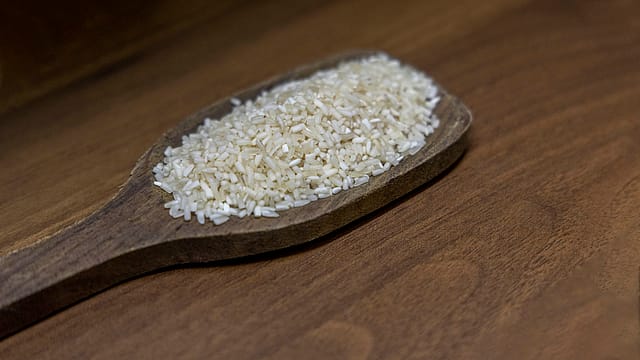LT Foods, Kohinoor Foods, Adani Wilmar stocks soar up to 20% after govt removes floor price on Basmati rice
ADVERTISEMENT

Shares of rice companies, including KRBL, LT Foods, Kohinoor Foods, and Adani Wilmar, surged up to 20% intraday today as sentiment was lifted after the government removed floor price on Basmati rice. This was triggered by the government's decision to remove the minimum export price (MEP) on basmati rice, announced by the commerce ministry in a Saturday order. The removal has driven a significant uptick in these stocks.
Shares of Kohinoor Foods surged 20%, hitting an intraday high of ₹46.83 on the NSE from the previous close of ₹39.03, making it the top gainer. KRBL Limited saw its stock rise 7.69% to ₹327.60 from the prior close of ₹304.20, currently trading at ₹321.20, up 5.59% from the opening price of ₹317. LT Foods also climbed to a 52-week high of ₹447.55, a 10% increase from the previous close of ₹407.60, now trading at ₹434.85.
Other prominent rice exporters, including Chaman Lal Setia Exports Ltd, GRM Overseas Ltd, Mishtann Foods Ltd, Sarvesh Foods, and Lakshmi Energy and Foods Limited, saw a boost in share prices following the government's removal order. Adani Wilmar Ltd also experienced gains as market participants anticipate a surge in exports. The company’s shares rose to ₹376, up 4.3% from the previous close of ₹360.40.
“In a significant step to boost export of basmati rice, a premier GI variety (of) rice of India, the Government of India has decided to remove the floor price on the export of basmati rice,” the government press release said.
“The Agricultural and Processed Food Products Export Development Authority (APEDA) will closely monitor export contracts to prevent any non-realistic pricing of basmati rice and ensure transparency in export practices,” the release added.
In August 2023, the government introduced a floor price of $1,200 per metric tonne (MT) on basmati rice exports as a temporary measure to address rising domestic prices and prevent the misclassification of non-basmati rice during exports, amid the export ban on non-basmati white rice. The Minimum Export Price (MEP) is a regulatory floor set by the government to control the minimum price at which goods, like Basmati rice, can be exported, preventing undervaluation.
After receiving feedback from trade bodies, the floor price was reduced to $950 per MT in October 2023. Now, considering ongoing trade concerns and sufficient domestic rice availability, the government has decided to remove the floor price on basmati rice exports completely.
India is the world’s leading exporter of Basmati rice, shipping 5.24 million metric tonnes worth ₹48,389 crore in 2023-24, according to the latest data from APEDA. Major export destinations include Saudi Arabia, Iran, Iraq, the UAE, the USA, and Yemen. The special rice variant is cultivated in Himalayan states such as Jammu & Kashmir, Himachal Pradesh, Punjab, Haryana, Delhi, Uttarakhand, and western Uttar Pradesh.
The country filed a GI tag for the basmati rice in February 2016. A Geographical Indicator (GI) tag serves as a legal mechanism to protect products from imitation, ensuring that goods are associated with their specific region of origin and recognized for their quality and reputation.